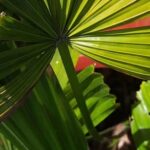Are you looking for inspiration to transform your outdoor space in North Carolina? This article will guide you through NC landscaping ideas that will help you create a beautiful and functional landscape to enjoy year-round. From native plants to sustainable practices, we will explore various elements that can enhance the beauty of your outdoor environment.
If you are seeking ways to elevate the aesthetic appeal and functionality of your NC landscape, then this article is for you. Whether you are a homeowner or a business owner, these ideas can be tailored to suit your specific needs and preferences.
One of the most important factors to consider when planning your NC landscaping is the climate. Understanding the unique weather patterns and natural environment of North Carolina will help you make informed decisions about plant selection, hardscaping features, and water management strategies. By taking into account these crucial factors, you can ensure that your landscape thrives regardless of the season.
In addition to climate considerations, choosing native plants and trees is essential for creating a low-maintenance and sustainable landscape in North Carolina. Native species are adapted to the local climate and soil conditions, making them well-suited for NC landscaping. With a wide variety of options available, incorporating native plants and trees into your landscape design will not only celebrate the beauty of the region but also attract local wildlife such as birds and butterflies.
When it comes to maintaining a beautiful landscape throughout the year, it’s important to implement seasonal tips that address specific needs based on changing weather conditions. Proper maintenance routines tailored to each season will help keep your NC landscape looking its best all year long. Whether it’s pruning in spring or winterizing in fall, these seasonal tips will contribute to the overall health and longevity of your outdoor space.
Understanding the Climate
North Carolina’s climate plays a crucial role in determining the success of your landscaping efforts. Understanding the climate is essential when planning and maintaining a beautiful landscape in NC. Here are some factors to consider for NC landscaping:
1. Temperature: North Carolina experiences a varied climate with hot summers and mild winters. It’s important to select plants that can withstand the heat of summer and also tolerate the occasional frost in winter.
2. Rainfall: The state receives an average annual rainfall, which can vary depending on the region. When planning your landscaping, it’s important to choose plants that can thrive in both wet and dry conditions.
3. Soil Type: The soil composition in NC varies from region to region, ranging from sandy soils in coastal areas to clay soils inland. Understanding the type of soil in your area will help you select plants that are well-suited to the soil conditions.
4. Sun Exposure: Different areas of your landscape will receive varying amounts of sunlight throughout the day. When choosing plants, it’s important to take into account their sun exposure needs and place them accordingly.
Considering these factors will help you create a successful and thriving landscape that complements North Carolina’s climate and enhances the beauty of your outdoor space. By selecting the right plants and trees, taking seasonal variations into account, and implementing sustainable practices, you can achieve stunning results with your NC landscaping ideas.
Native Plants and Trees
When it comes to landscaping in North Carolina, choosing native plants and trees can greatly enhance the beauty of your outdoor space while also benefiting the local ecosystem. Native plants are well-adapted to the climate and soil conditions of the area, making them low-maintenance and more resilient to pests and diseases. Here are some of the best options for native plants and trees to consider for your NC landscaping ideas:
- Eastern Redbud (Cercis canadensis)
- Black-eyed Susan (Rudbeckia hirta)
- American Beautyberry (Callicarpa americana)
- Longleaf Pine (Pinus palustris)
- Southern Magnolia (Magnolia grandiflora)
These native plants and trees not only add color, texture, and variety to your landscape but also provide food and shelter for local wildlife. By incorporating these species into your landscaping design, you can create a vibrant and sustainable outdoor environment that reflects the natural beauty of North Carolina.
In addition to their ecological benefits, native plants also contribute to water conservation efforts in the region. Their deep root systems help prevent soil erosion, retain moisture, and improve overall soil health. When planning your NC landscaping project, consider consulting with a local nursery or landscape professional who specializes in native plant species.
They can provide valuable insight into which plants and trees will thrive in your specific area and offer guidance on how to incorporate them into your overall landscape design. Incorporating native plants and trees into your NC landscaping not only supports the local environment but also creates a beautiful and sustainable outdoor space for you to enjoy year-round.
Seasonal Tips
When it comes to maintaining a beautiful landscape in North Carolina, it’s important to understand the seasonal changes that affect your outdoor space. One of the key factors to consider is the climate, which varies throughout the year in NC. From hot and humid summers to cool and sometimes snowy winters, each season presents its own set of challenges for landscaping.
In the spring, it’s essential to focus on tasks such as fertilizing, mulching, and planting new flowers or shrubs. The moderate temperatures and frequent rain showers create perfect conditions for growth. As we move into summer, it’s important to keep up with regular watering and maintain your lawn by mowing and edging regularly.
Autumn brings cooler temperatures and falling leaves, so be sure to schedule regular leaf removal and continue mowing until the grass stops growing for the season. Finally, winter in NC can be unpredictable, but it’s crucial to protect any sensitive plants from frost and freezing temperatures. With these seasonal maintenance tips in mind, you can ensure that your NC landscape remains beautiful and healthy throughout the year.
| Season | Maintenance Tasks |
|---|---|
| Spring | Fertilizing, mulching, planting new flowers or shrubs |
| Summer | Regular watering, mowing, edging |
| Autumn | Leaf removal, continued mowing until grass stops growing |
| Winter | Protect sensitive plants from frost and freezing temperatures |
By following these seasonal tips for maintaining your NC landscape, you can ensure that your outdoor space looks beautiful year-round. Whether you enjoy working on your landscape yourself or prefer hiring a professional landscaping company for assistance with seasonal maintenance tasks, keeping up with these tips will help preserve the beauty of your NC landscape.
Remember that understanding the specific climate factors at play in North Carolina is key when determining how best to care for your landscaping needs throughout each season. Additionally native plants are often a great option as they are typically more resilient against local weather conditions than non-native species.
Hardscaping and Softscaping
What Is Hardscaping?
Hardscaping refers to the use of non-living elements in landscaping, such as pathways, walls, and other structures. When it comes to NC landscaping ideas, hardscaping plays a crucial role in creating balance and structure in your outdoor space. With North Carolina’s varying weather conditions, it’s important to consider hardscape materials that can withstand the heat and humidity of the region.
Choosing the Right Hardscape Materials
When considering hardscaping for your NC landscape, it’s essential to choose materials that are not only aesthetically pleasing but also durable. Some popular choices for hardscape materials in North Carolina include natural stone, brick, and concrete pavers. These materials are not only able to withstand the climate of NC but also add a touch of elegance to your outdoor space.
The Role of Softscaping
In contrast to hardscaping, softscaping involves the use of living elements such as plants, trees, and flowers. When creating a balanced landscape in North Carolina, it’s important to integrate softscape elements that complement the hardscape features. Native plants and trees play a significant role in softscaping for NC landscapes as they are well-suited to the region’s climate and soil conditions.
Water Features
Water feature installations are a popular and beautiful addition to any North Carolina landscape. Ponds, fountains, and other water elements can create a serene and relaxing atmosphere, as well as provide habitat for local wildlife. When considering water features for your NC landscaping, there are several key factors to keep in mind.
Choosing the Right Water Feature
Before installing a water feature, it’s important to consider the size and layout of your outdoor space. Ponds may be suitable for larger properties, while fountains or smaller water features can work well in more compact areas. Additionally, the style of your home and landscape should also guide your decision in choosing the right water feature that complements the overall design.
Maintenance and Care
Proper maintenance is essential to keeping your water feature looking its best throughout the year. Regular cleaning, proper circulation, and checking for leaks are all important aspects of maintaining a healthy and functional pond or fountain. In the context of NC landscaping ideas, it’s crucial to consider how seasonal changes might affect your water feature, such as keeping it free from debris during fall or protecting it from freezing temperatures in winter.
Eco-Friendly Considerations
When incorporating water features into your NC landscaping, it’s important to consider eco-friendly practices. Utilizing native aquatic plants can help maintain a balanced ecosystem within your pond or water feature while also providing food and shelter for local wildlife. Additionally, using solar-powered pumps and filters can reduce energy consumption and minimize your environmental impact.
By carefully planning and maintaining a water feature in your NC landscape, you can enhance the beauty of your outdoor space while also creating a harmonious environment for both local flora and fauna. Whether you choose a tranquil pond or an elegant fountain, integrating water features into your landscaping can truly elevate the overall ambiance of your property.
Sustainable Practices
With the growing concern for environmental conservation, sustainable landscaping practices have become increasingly popular in North Carolina. Using eco-friendly landscaping ideas not only helps to preserve the natural beauty of the area but also contributes to a healthier ecosystem. There are several sustainable practices that homeowners can implement to create an environmentally friendly landscape that thrives in the NC climate.
One of the key eco-friendly landscaping ideas for NC is xeriscaping, which involves using drought-resistant plants and minimizing water usage. This practice not only conserves water but also reduces the need for chemical fertilizers and pesticides, thereby promoting a more natural and balanced ecosystem in your landscape.
Additionally, incorporating native plants into your landscape design is another sustainable practice that benefits both the environment and local wildlife. Native plants require less maintenance, as they are well-suited to the climate and soil conditions of North Carolina.
Furthermore, installing a rain garden or utilizing permeable paving materials can help manage stormwater runoff effectively, reducing pollution in water bodies and replenishing groundwater supplies. By implementing these sustainable practices, homeowners can create a beautiful and environmentally responsible landscape that reflects the unique charm of North Carolina while minimizing their ecological footprint. These eco-friendly landscaping ideas not only benefit the immediate surroundings but also contribute to the overall health of the environment in North Carolina.
Hiring a Professional
Working with a professional NC landscaping company can offer a plethora of benefits when it comes to bringing your outdoor space to life. These companies have the expertise and knowledge of the local climate, soil conditions, and native plants that are best suited for landscaping in North Carolina. By hiring a professional, you can ensure that your landscaping project is well-designed and executed, creating a beautiful and sustainable outdoor space for you to enjoy.
One of the key benefits of working with a NC landscaping company is their understanding of the specific climate and environmental factors in the region. They will be able to tailor their designs and plant selection to thrive in North Carolina’s unique weather patterns, such as hot summers and mild winters. This means that your landscape will be more resilient and require less maintenance over time.
Additionally, NC landscaping companies are well-versed in sustainable practices that promote eco-friendly landscaping ideas for the region. From using native plants and drought-resistant species to implementing water-saving irrigation systems, these professionals can help you create a landscape that is both beautiful and environmentally friendly.
By choosing to work with a professional, you can be confident that your landscaping project will not only enhance the beauty of your outdoor space but also contribute positively to the local ecosystem.
Finally, hiring a NC landscaping company can save you time and effort. These professionals have the skills, equipment, and manpower to efficiently complete your landscaping project, allowing you to sit back and enjoy the transformation of your outdoor space without having to do all the heavy lifting yourself.
| Benefits | Description |
|---|---|
| Expertise in local climate | Professionals understand North Carolina’s weather patterns and soil conditions. |
| Sustainable practices | NC landscapers can help create an eco-friendly landscape. |
| Time-saving | Professionals have the skills, equipment, and manpower for efficient completion. |
Conclusion
As you explore the beauty of NC landscaping, it’s important to consider the climate and choose the best native plants and trees to create a stunning landscape that thrives year-round. By understanding the seasonal tips for maintaining your landscape and finding balance through hardscaping and softscaping, you can bring your NC landscaping ideas to life in a sustainable and eco-friendly way.
Incorporating water features such as ponds and fountains can add a unique touch to your NC landscape, creating a soothing ambiance and enhancing the overall beauty of your outdoor space. Whether you’re interested in creating a serene backyard retreat or a vibrant garden oasis, there are endless possibilities for designing the perfect landscaping with NC in mind.
While taking on landscaping projects yourself can be rewarding, hiring a professional NC landscaping company can offer numerous benefits. From their expertise in working with the local climate and environment to their access to specialized tools and materials, professionals can turn your vision into reality with precision and efficiency. By partnering with experts in NC landscaping, you can ensure that every aspect of your outdoor space is thoughtfully designed, well-maintained, and truly brings your NC landscaping ideas to life.
Frequently Asked Questions
What Is the Least Expensive Backyard Landscaping?
The least expensive backyard landscaping option typically involves using basic materials such as grass seed, mulch, and a few low-cost plants. Incorporating DIY elements like a simple gravel pathway or homemade planters can also keep costs down while still improving the overall look of the space.
What Is the Cheapest Landscape Fill?
When looking for the cheapest landscape fill, using materials like recycled concrete or gravel can be more budget-friendly options compared to traditional soil or sand. Additionally, reaching out to local landscaping companies or construction sites to ask about any excess fill they need to dispose of can sometimes result in obtaining fill for little to no cost.
How Do You Make a Landscape Look Expensive?
To make a landscape look expensive without breaking the bank, focusing on key focal points like a well-maintained lawn, strategic lighting, and clean lines can elevate the overall aesthetic. Adding small details like decorative edging or investing in quality, durable materials can also contribute to creating an upscale appearance for a fraction of the cost.

Welcome to my gardening blog! I am passionate about plants and enjoy sharing my knowledge and experiences with others. In this blog, I will write about everything related to gardening, from tips on how to get started to updates on my own garden projects.





